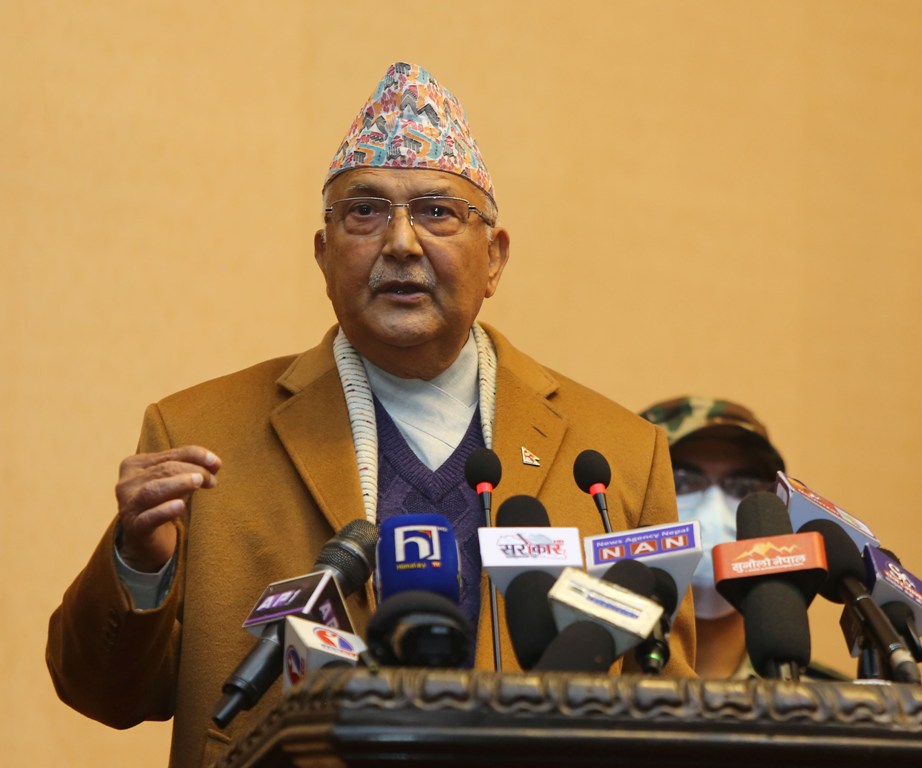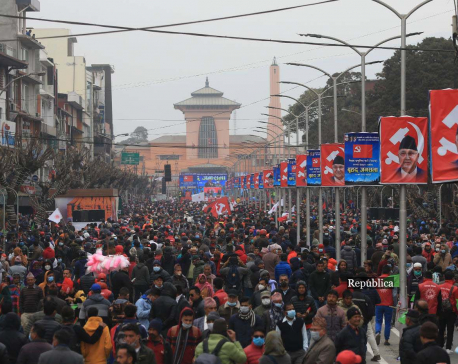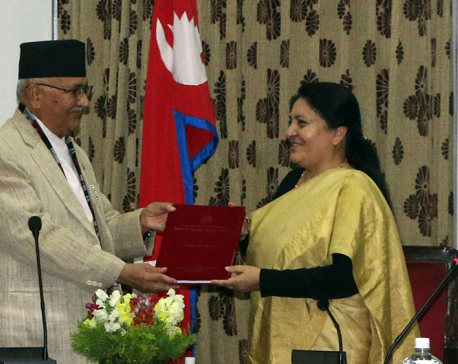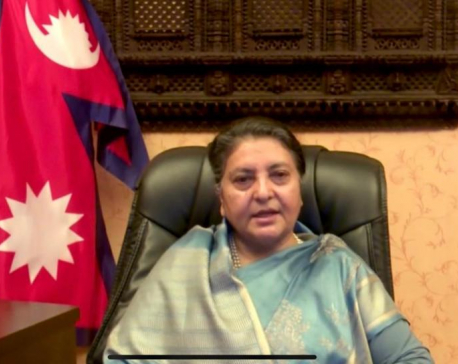
OR
Is parliament dissolution constitutional?
Published On: February 18, 2021 07:00 AM NPT By: Neha Sharma

More from Author
Prime Minister Oli has not been able to prove how exactly the House of the Representatives did not cooperate with him in carrying out his duties.
Prime Minister KP Sharma Oli recommended dissolution of the House of Representatives, the lower house of parliament, which was shortly approved by President Bidya Devi Bhandari on December 20, 2020. The House dissolution has thrown politics in chaos. This is not the first instance of president swiftly approving PM’s recommendation. Even controversial recommendations by the PM have been granted stamp of approval by the president. Endorsement of ordinance to amend the Constitutional Council Act so as to enable him to appoint his supporters in constitutional bodies is one of the latest examples.
If the Prime Minister, who is elected by parliament or has a majority in parliament, does not have the support of parliament to rule, he may recommend the head of state to dissolve parliament and seek fresh mandate. In a parliamentary system, right to dissolve parliament is taken as an exclusive right of the PM. The 1990 constitution had given such right to the PM, current constitution has not.
Some argue that PM has a prerogative right to dissolve parliament in parliamentary democratic system. However, this prerogative power is not absolute. It has certain limitations.
With regard to PM’s recommending House dissolution and president endorsing it immediately afterward, two arguments are making rounds. First, the constitutional head of state cannot reject the recommendation of the PM. Second, president can reject the recommendation of the PM to dissolve parliament under Lascelles Principles—meaning existing parliament can still function, going to the general election immediately will have a serious impact on the economic condition of the country and parliament can nominate another PM, among others.
The Office of the President declared dissolution of parliament citing Article 76(1) (7) and Article 85 of the constitution, norms and spirit of parliamentary system and practices of different countries. However, Article 76(7) permits the dissolution only if parliament is unable to form a government even after all options provided for in Article 76 are exhausted. Article 85(1) of the Constitution states: “Unless dissolved earlier pursuant to this constitution, the term of the House of Representatives shall be five years.” This Article should be harmoniously read with Article 76 (7) which provides unsuccessful attempts of parliament to choose PM as a condition precedent.
Following parliament dissolution, Nepal Communist Party (NCP), Nepali Congress and other political parties along with civil society have opposed the move as ‘unconstitutional’ and they are in protests.
Supporters of House dissolution cite the examples of such incident from the past. Yes, parliament was dissolved in the past too but they were based on constitutional grounds. Article 53(4) of Constitution of Kingdom of Nepal had explicitly stated that Prime Minister can recommend the King to dissolve parliament. On this constitutional ground, Prime Minister Girija Prasad Koirala made recommendation for the dissolution, which was endorsed by the Supreme Court citing that the Constitution does not provide any preconditions for the dissolution of the House of Representatives by the Prime Minister. Attempt to dissolve parliaments by Prime Minister Manmohan Adhikari was rejected by the Supreme Court citing that 96 members of parliament have called for special session of the House with intention of filing no-confidence motion against Prime Minister and if there is possibility of alternate government from existing parliament then dissolution of house cannot be made. Later Prime Minister Surya Bahadur Thapa and Prime Minister Sher Bahadur Deuba made similar attempts—the attempt by the former was rejected by the court.
The case of parliament dissolution is sub judice in the Supreme Court. But the truth is there is no specific provision in constitution for the dissolution of parliament by Prime Minister holding majority. Further, the condition precedent stated in Article 76(7) for the dissolution is not attained and possibility of electing another Prime Minister from parliament was not tested. Besides, the PM has not been able to prove how exactly the House of the Representatives did not cooperate with him in carrying out his duties.
Besides, our system cannot be called as a traditional parliamentary system as the constitution itself has stated that the system of government of Nepal is a federal democratic republican parliamentary system. Thus examples of countries with parliamentary system may not be relevant here.
Constitution should not be held hostage to internal party conflict. Dissolution of parliament will create political tension which ultimately weakens constitution. Similarly, any activity which weakens the constitution will create high level of public resentment and kills the hope of Nepalis for stability, ultimately creating a base for revolution.
Arbitrary decision of the Prime Minister should not be allowed to keep democratic governance of the state as well as the rights of the people at stake.
You May Like This

Oli’s follies
Deceit and thuggery have gone to such an extent that in one moment PM says one thing and in the... Read More...

Messing up the system
When a government elected with an overwhelming majority dissolves the House due to the failure and inability to manage intra... Read More...

Prez Bhandari wishes US President Trump a speedy recovery
KATHMANDU, Oct 2: President Bidya Devi Bhandari has sent a message to US President Donald J. Trump wishing him and... Read More...





Just In
- CM Kandel requests Finance Minister Pun to put Karnali province in priority in upcoming budget
- Australia reduces TR visa age limit and duration as it implements stricter regulations for foreign students
- Govt aims to surpass Rs 10 trillion GDP mark in next five years
- Govt appoints 77 Liaison Officers for mountain climbing management for spring season
- EC decides to permit public vehicles to operate freely on day of by-election
- Fugitive arrested after 26 years
- Indian Potash Ltd secures contract to bring 30,000 tons of urea within 107 days
- CAN adds four players to squad for T20 series against West Indies 'A'














Leave A Comment